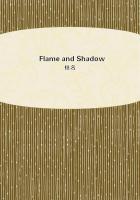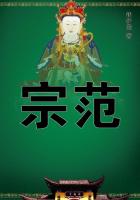To pacify the popular clamour he called together a meeting of the Notables in the year 1787. This merely meant a gathering of the best families who discussed what could and should be done, without touching their feudal and clerical privilege of tax-exemption. It is unreasonable to expect that a certain class of society shall commit political and economic suicide for the benefit of another group of fellow-citizens. The 127 Notables obstinately refused to surrender a single one of their ancient rights. The crowd in the street, being now exceedingly hungry, demanded that Necker, in whom they had confidence, be reappointed. The Notables said "No." The crowd in the street began to smash windows and do other unseemly things. The Notables fled. Calonne was dismissed.
A new colourless Minister of Finance, the Cardinal Lomenie de Brienne, was appointed and Louis, driven by the violent threats of his starving subjects, agreed to call together the old Estates General as "soon as practicable." This vague promise of course satisfied no one.
No such severe winter had been experienced for almost a century. The crops had been either destroyed by floods or had been frozen to death in the fields. All the olive trees of the Provence had been killed. Private charity tried to do some- thing but could accomplish little for eighteen million starving people. Everywhere bread riots occurred. A generation before these would have been put down by the army. But the work of the new philosophical school had begun to bear fruit.
People began to understand that a shotgun is no effective remedy for a hungry stomach and even the soldiers (who came from among the people) were no longer to be depended upon.
It was absolutely necessary that the king should do something definite to regain the popular goodwill, but again he hesitated.
Here and there in the provinces, little independent Republics were established by followers of the new school. The cry of "no taxation without representation" (the slogan of the American rebels a quarter of a century before) was heard among the faithful middle classes. France was threatened with general anarchy. To appease the people and to increase the royal popularity, the government unexpectedly suspended the former very strict form of censorship of books. At once a flood of ink descended upon France. Everybody, high or low, criticised and was criticised. More than 2000 pamphlets were published. Lomenie de Brienne was swept away by a storm of abuse. Necker was hastily called back to placate, as best he could, the nation-wide unrest. Immediately the stock market went up thirty per cent. And by common consent, people suspended judgment for a little while longer. In May of 1789 the Estates General were to assemble and then the wisdom of the entire nation would speedily solve the difficult problem of recreating the kingdom of France into a healthy and happy state.
This prevailing idea, that the combined wisdom of the people would be able to solve all difficulties, proved disastrous.
It lamed all personal effort during many important months.
Instead of keeping the government in his own hands at this critical moment, Necker allowed everything to drift. Hence there was a new outbreak of the acrimonious debate upon the best ways to reform the old kingdom. Everywhere the power of the police weakened. The people of the Paris suburbs, under the leadership of professional agitators, gradually began to discover their strength, and commenced to play the role which was to be theirs all through the years of the great unrest, when they acted as the brute force which was used by the actual leaders of the Revolution to secure those things which could not be obtained in a legitimate fashion.
As a sop to the peasants and the middle class, Necker de- cided that they should be allowed a double representation in the Estates General. Upon this subject, the Abbe Sieyes then wrote a famous pamphlet, "To what does the Third Estate Amount?" in which he came to the conclusion that the Third Estate (a name given to the middle class) ought to amount to everything, that it had not amounted to anything in the past, and that it now desired to amount to something. He expressed the sentiment of the great majority of the people who had the best interests of the country at heart.
Finally the elections took place under the worst conditions imaginable. When they were over, 308 clergymen, 285 noblemen and 621 representatives of the Third Estate packed their trunks to go to Versailles. The Third Estate was obliged to carry additional luggage. This consisted of voluminous reports called "cahiers" in which the many complaints and grievances of their constituents had been written down. The stage was set for the great final act that was to save France.
The Estates General came together on May 5th, 1789.
The king was in a bad humour. The Clergy and the Nobility let it be known that they were unwilling to give up a single one of their privileges. The king ordered the three groups of representatives to meet in different rooms and discuss their grievances separately. The Third Estate refused to obey the royal command. They took a solemn oath to that effect in a squash court (hastily put in order for the purpose of this illegal meeting) on the 20th of June, 1789. They insisted that all three Estates, Nobility, Clergy and Third Estate, should meet together and so informed His Majesty. The king gave in.
As the "National Assembly," the Estates General began to discuss the state of the French kingdom. The King got angry. Then again he hesitated. He said that he would never surrender his absolute power. Then he went hunting, forgot all about the cares of the state and when he returned from the chase he gave in. For it was the royal habit to do the right thing at the wrong time in the wrong way. When the people clamoured for A, the king scolded them and gave them nothing.















